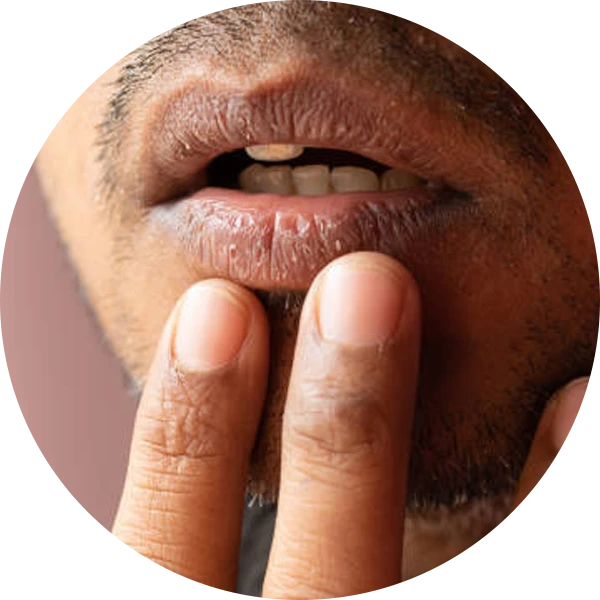Irritable Bowel Syndrome (IBS) is a common disorder affecting the large intestine. It is a functional disorder, meaning the structure of the bowel appears normal, but it doesn’t function properly. Symptoms include cramping, abdominal pain, bloating, gas, and a change in bowel habits, which can be diarrhea, constipation, or both. Unlike Inflammatory Bowel Disease (IBD), IBS does not cause inflammation or damage to the intestinal tract.
In Ayurveda, IBS is classified as Grahani, a condition where the digestive fire (Agni) in the small intestine is weakened. The term Grahani refers to the part of the small intestine that is responsible for holding and digesting food. When this function is impaired, food is not properly digested, leading to a host of symptoms.
The primary cause of Grahani is a profound imbalance of the three doshas, with Vata playing a key role in the bowel’s irregular movements and Pitta and Kapha also contributing. The root issue is a weakened digestive fire, which leads to the formation of Ama (undigested toxins) that settle in the gut.


This is the central cause. A sluggish metabolism leads to poor digestion and the formation of Ama.

Consuming incompatible food combinations, stale or processed foods, and eating before the previous meal is digested can all weaken Agni.

Chronic mental and emotional stress can disrupt the balance of the doshas and directly impact gut health.

Holding back urges to urinate or pass stools can lead to an accumulation of Vata, causing irregular bowel movements.

Eating again before the previous meal has been digested can overwhelm the digestive system.

Abdominal Pain & Cramping
(Udarshula)

Diarrhea & Constipation
(Atisara & Diarrhea)

Irregular Bowel Habits
(Aniyata Mala Pravritti)

Bloating & Gas
(Udara Purna)

Dry Mouth & Loss of Appetite
(Gala Shuska & Aruchi)







Due to improper diet and lifestyle, the digestive fire in the small intestine becomes weak.
The weak Agni leads to the formation of Ama (undigested toxins), which is sticky and heavy.
The Ama and vitiated doshas settle in the small intestine, impairing its function of holding and digesting food.
The Ama and doshas block the channels that nourish the gut, leading to poor absorption of nutrients.
This leads to the classic symptoms of abdominal pain, bloating, and irregular bowel habits.
We begin with a detailed evaluation combining modern diagnostic tools with Ayurvedic assessments such as Prakriti (body constitution), Vikriti (current imbalance), dosha mapping, and lifestyle review. This dual lens helps us see the full picture of your health, beyond just the symptoms.
Ayurveda teaches us that diseases are born from underlying imbalances; not just isolated issues. We carefully study dietary habits, digestion (Agni), toxin accumulation (Ama), stress, and daily routines to uncover the true root cause of your condition.
No two patients are alike. Your treatment is tailored to your unique body type (Vata, Pitta, Kapha), disease stage, and co-existing conditions. This ensures maximum effectiveness and safety, while restoring balance at the deepest level.
Healing isn’t one-dimensional. Based on your needs, we combine:
This integrated approach ensures that body, mind, and spirit heal together.
Health doesn’t end with treatment. We equip you with home remedies, seasonal routines, lifestyle practices, and follow-up support to prevent relapse and help you sustain wellness for the long term.
Ayurvedic treatment for Grahani is a holistic approach focused on correcting the digestive fire, removing Ama, and balancing the doshas.

Warm, cooked, and easily digestible foods. Include spices like ginger, cumin, and fennel, which help to kindle the digestive fire.

Cold, raw, and heavy foods. Avoid processed foods, refined sugars, and incompatible food combinations (e.g., milk with fish).
| Do's | Don'ts |
|---|---|
Maintain a Regular Schedule: Eat meals at the same time each day to strengthen Agni. | Avoid Eating When Stressed: Eat in a calm and relaxed environment. |
Stay Hydrated: Drink warm water or herbal teas throughout the day. | Don’t Suppress Natural Urges: Go to the bathroom as soon as you feel the urge. |
Chew Food Thoroughly: Proper chewing is the first step of good digestion. | Avoid Cold Drinks and Foods: These can weaken the digestive fire. |
Poses like Balasana (Child’s Pose) and Paschimottanasana (Seated Forward Bend) can help calm the nervous system and aid digestion.
Nadi Shodhana (Alternate Nostril Breathing) is excellent for calming the mind and reducing stress.

In Ayurveda, IBS is classified as Grahani, a condition where the digestive fire (Agni) in the small intestine is weakened. The term Grahani refers to the part of the small intestine that is responsible for holding and digesting food. When this function is impaired, food is not properly digested, leading to a host of symptoms.
The primary cause of Grahani is a profound imbalance of the three doshas, with Vata playing a key role in the bowel’s irregular movements and Pitta and Kapha also contributing. The root issue is a weakened digestive fire, which leads to the formation of Ama (undigested toxins) that settle in the gut.

Abdominal Pain & Cramping
(Udarshula)

Diarrhea & Constipation
(Atisara & Diarrhea)

Irregular Bowel Habits
(Aniyata Mala Pravritti)

Bloating & Gas
(Udara Purna)

Dry Mouth & Loss of Appetite
(Gala Shuska & Aruchi)
This is one of the most common and important questions that our patients ask us to clarify.
It may be possible to significantly improve blood sugar control, reduce symptoms, and support metabolic balance through the right combination of:
For some patients with a history of diabetes, this may mean reducing medication dependency.
For others, it may mean preventing complications and stabilising long-term health.
Every body is different, every outcome is different and our healing process respects that.


This is the central cause. A sluggish metabolism leads to poor digestion and the formation of Ama.

Consuming incompatible food combinations, stale or processed foods, and eating before the previous meal is digested can all weaken Agni.

Chronic mental and emotional stress can disrupt the balance of the doshas and directly impact gut health.

Holding back urges to urinate or pass stools can lead to an accumulation of Vata, causing irregular bowel movements.

Eating again before the previous meal has been digested can overwhelm the digestive system.




If you have been recently diagnosed as diabetic or if you have been managing diabetes with medications and other alternate forms of treatment, you can seek support. It’s helpful to reach out especially if:
A structured approach to managing diabetes brings clarity and reduces stress.
Ayurveda views diabetes as a metabolic imbalance influenced by:
Rather than only focusing on blood sugar numbers, Ayurveda supports the whole system, including:
Treatment is personalised, not one-size-fits-all and includes:

We begin with a detailed evaluation combining modern diagnostic tools with Ayurvedic assessments such as Prakriti (body constitution), Vikriti (current imbalance), dosha mapping, and lifestyle review. This dual lens helps us see the full picture of your health, beyond just the symptoms.
Ayurveda teaches us that diseases are born from underlying imbalances; not just isolated issues. We carefully study dietary habits, digestion (Agni), toxin accumulation (Ama), stress, and daily routines to uncover the true root cause of your condition.
No two patients are alike. Your treatment is tailored to your unique body type (Vata, Pitta, Kapha), disease stage, and co-existing conditions. This ensures maximum effectiveness and safety, while restoring balance at the deepest level.
Healing isn’t one-dimensional. Based on your needs, we combine:
This integrated approach ensures that body, mind, and spirit heal together.
Health doesn’t end with treatment. We equip you with home remedies, seasonal routines, lifestyle practices, and follow-up support to prevent relapse and help you sustain wellness for the long term.
Ayurvedic treatment for Grahani is a holistic approach focused on correcting the digestive fire, removing Ama, and balancing the doshas.


